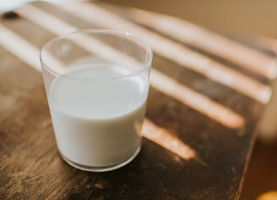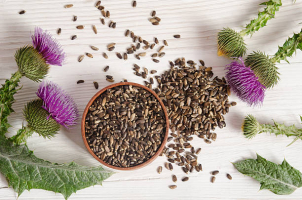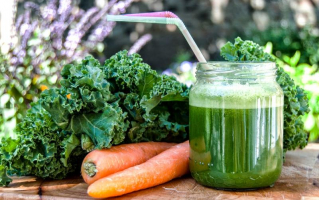Top 5 Health Benefits of Camel Milk
For millennia, nomadic civilizations living in harsh conditions like deserts have relied heavily on camel milk as a source of nourishment. It is currently ... read more...manufactured for commercial purposes, distributed worldwide, and offered online in frozen and powdered form. You might question why some individuals pick camel milk when there are widely available options like cow's milk and other plants- and animal-based milk. Here are some of camel milk's most astounding health advantages.
-
Numerous elements that are vital for general health are abundant in camel milk. Camel milk is equivalent to full cow's milk in terms of calories, protein, and carbohydrates. It has greater vitamin C, B vitamins, calcium, iron, and potassium while having less saturated fat. It's also a fantastic source of heart- and brain-healthy lipids including long-chain fatty acids, linoleic acid, and unsaturated fatty acids. One-half cup (120 ml) of camel milk contains the following nutrients:
- Calories: 50
- Protein: 3 grams
- Fat: 3 grams
- Carbs: 5 grams
- Thiamine: 29% of the Daily Value (DV)
- Riboflavin: 8% of the DV
- Calcium: 16% of the DV
- Potassium: 6% of the DV
- Phosphorus: 6% of the DV
- Vitamin C: 5% of the DV
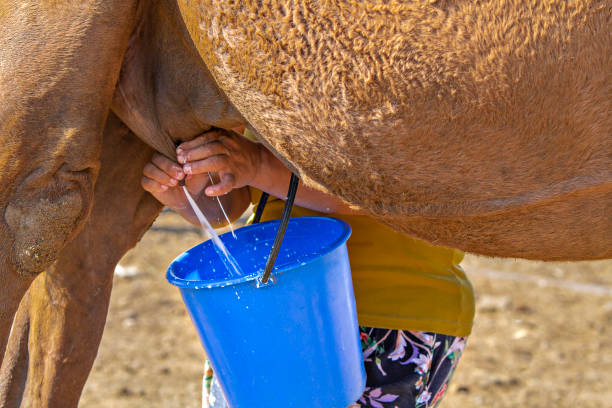
Rich in nutrients 
Rich in nutrients -
A lack of lactase, an enzyme required to break down the lactose found in dairy products, results in the prevalent illness known as lactose intolerance. After consuming dairy products, it may result in bloating, diarrhea, and pain in the abdomen. Many people who are lactose intolerant find camel milk to be more palatable since it has less lactose than cow's milk. Only two of the 25 subjects in one research with this disease experienced a minor response to around 1 cup (250 ml) of camel milk; the other 24 participants showed no reaction.
Those who have a cow's milk allergy may be able to handle camel milk better since it has a different protein composition than cow's milk. In one research, only 20% of the 35 cow's milk-allergic children between the ages of 4 months and 10.5 years old tested positive for sensitivity to camel milk. Furthermore, camel milk has been used for hundreds of years to treat rotavirus-related diarrhea. According to research, milk includes antibodies that aid in the treatment of this diarrheal illness, which is particularly prevalent among youngsters.
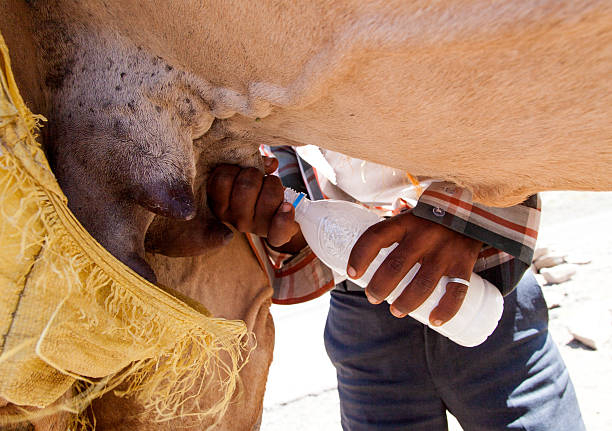
May be a better option for people with lactose intolerance or milk allergies 
May be a better option for people with lactose intolerance or milk allergies -
In both type 1 and type 2 diabetics, camel milk has been demonstrated to reduce blood sugar and increase insulin sensitivity. The milk's antidiabetic properties may be caused by proteins that resemble insulin. A hormone called insulin aids in controlling blood sugar levels. According to studies, 4 cups of camel milk is comparable to 52 units of insulin (1 liter). Additionally, it has a lot of zinc, which might enhance insulin sensitivity.
In a 2-month trial involving 20 persons with type 2 diabetes, those who drank 2 cups (500 ml) of camel milk saw an improvement in insulin sensitivity, but not those who drank cow's milk. In accordance with diet, exercise, and insulin therapy, a different study indicated that persons with type 1 diabetes who drank 2 cups (500 ml) of camel milk daily also experienced lower blood sugar and insulin levels than those who did not. Insulin was no longer required by three patients. In fact, a study of 22 research publications revealed that 2 cups (500 ml) of camel milk per day is the optimal amount to consume in order to help people with diabetes better regulate their blood sugar levels.

May lower blood sugar and insulin 
May lower blood sugar and insulin -
Compounds found in camel milk appear to combat a variety of pathogenic organisms. Lactoferrin and immunoglobulins, two proteins that may be responsible for camel milk's potential immune-stimulating effects, are the two primary active ingredients in the milk. Antibacterial, antifungal, antiviral, anti-inflammatory, and antioxidant activities are all possessed by lactoferrin. It prevents the growth of germs that can lead to serious illnesses, including E. coli, K. pneumoniae, Clostridium, H. pylori, S. aureus, and C. albicans.
Furthermore, mouse research demonstrated that camel milk shielded against the hazardous anticancer treatment cyclophosphamide's leukopenia (low white blood cell count) and other negative effects. These findings back up the milk's ability to strengthen the immune system. More study points to camel whey protein as the cause of the milk's antimicrobial properties. It could possess antioxidant qualities that support your body's defense against free radical damage.

May fight disease-causing organisms and boost immunity 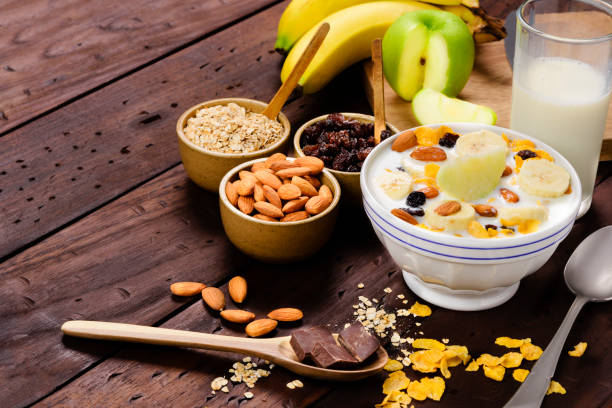
May fight disease-causing organisms and boost immunity -
Camel milk has been investigated for its benefits on childhood behavioral issues, and some individuals believe it may benefit persons with autism. Although a few small studies suggest possible advantages for enhancing autistic behaviors, the majority of the information is anecdotal. Multiple neurodevelopmental abnormalities that can hinder social interactions and lead to repetitive behaviors fall under the general label "autism spectrum disorders".
According to one research, camel milk may help autistic youngsters behave better. The research did mention that several of the individuals had lactose intolerance or a milk allergy, and cow's milk was utilized as a placebo in this particular trial. Another study found that camel milk consumption for two weeks significantly reduced autistic behavioral symptoms, compared to the placebo group, in 65 autistic children aged 2 to 12 years old. Despite encouraging findings, it is not advised to substitute camel milk for conventional autism therapies. The Food and Drug Administration (FDA) also cautions parents that there is little support for these claims. Lastly, camel milk may benefit neurodegenerative diseases like Parkinson’s and Alzheimer’s, but only a few animal studies have investigated this potential.

May aid brain conditions and autism spectrum disorder 
May aid brain conditions and autism spectrum disorder










